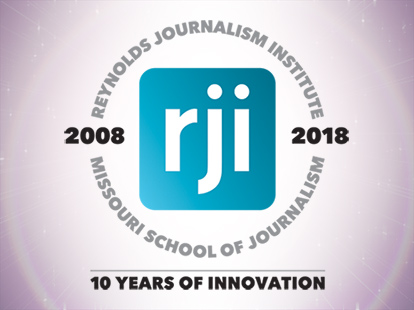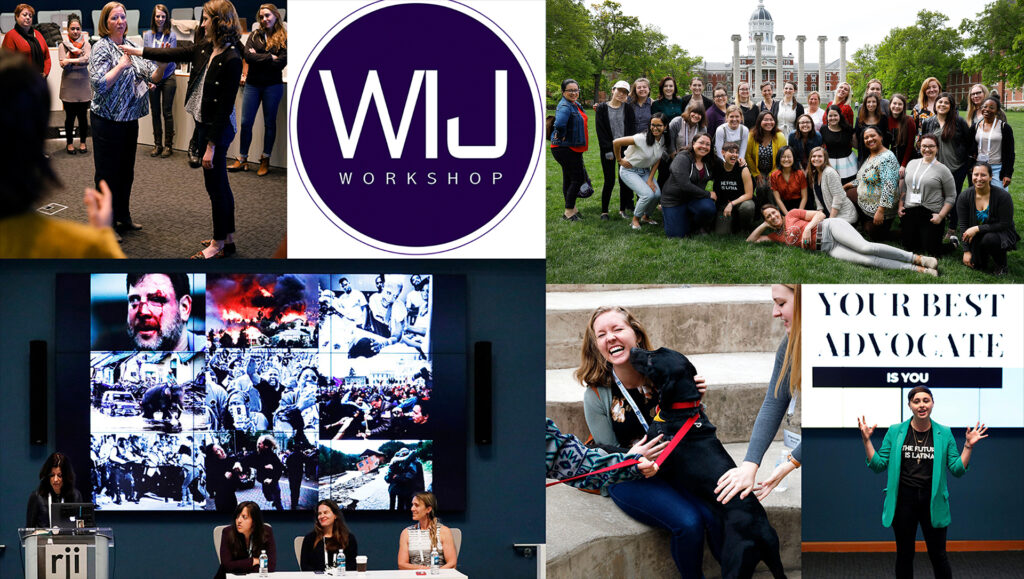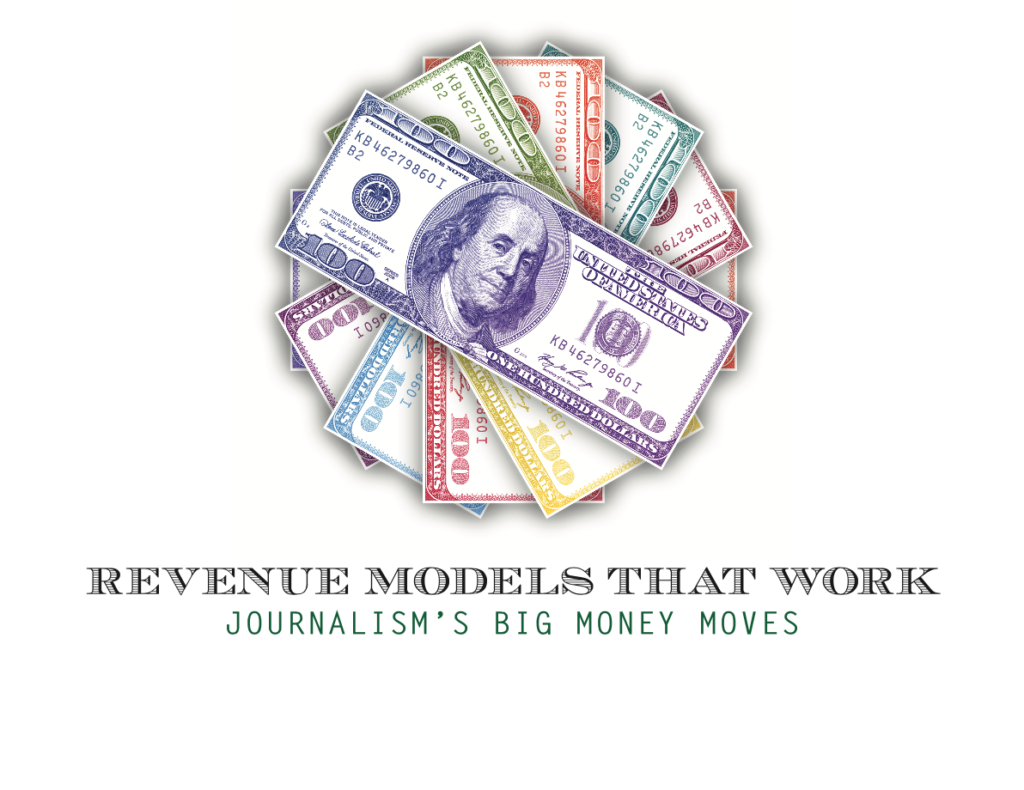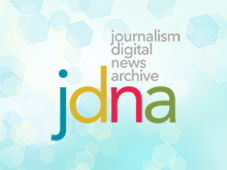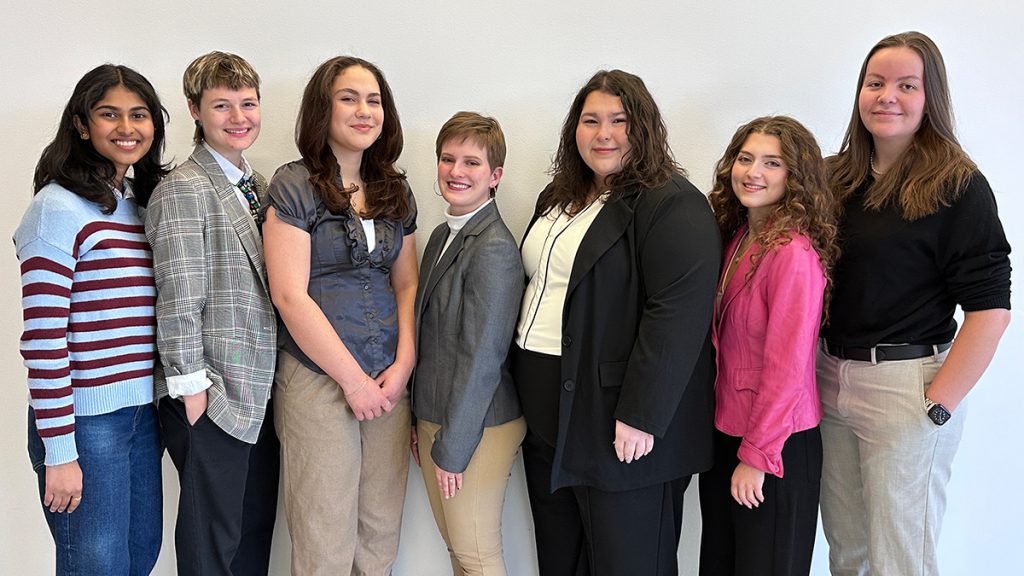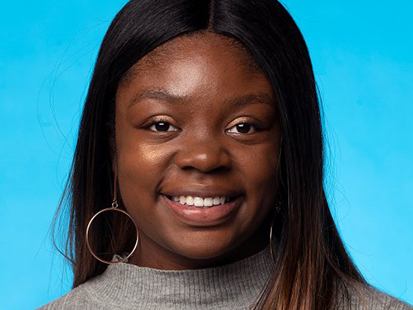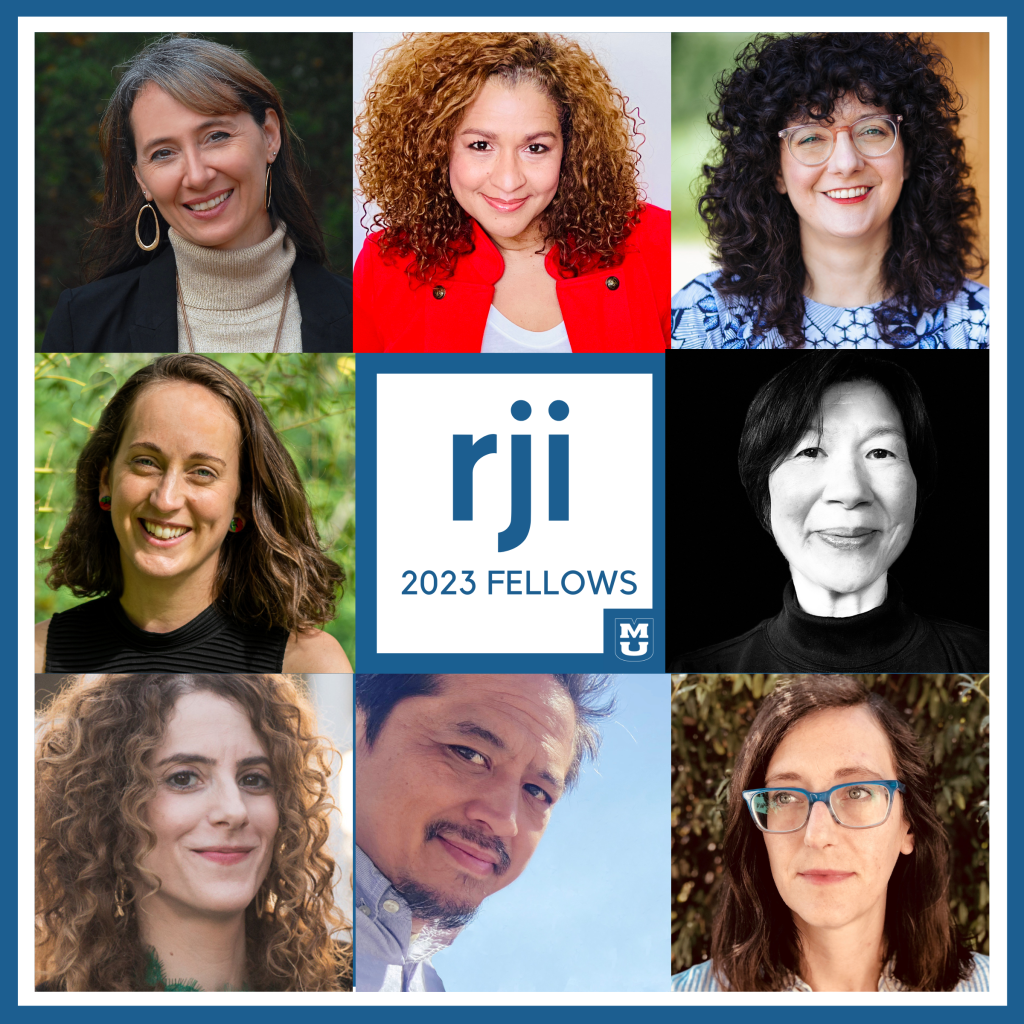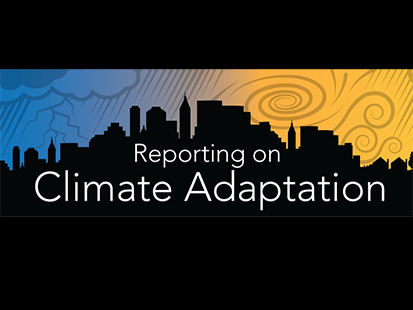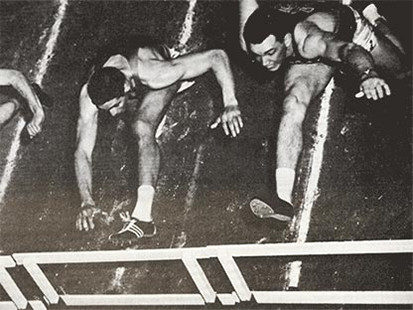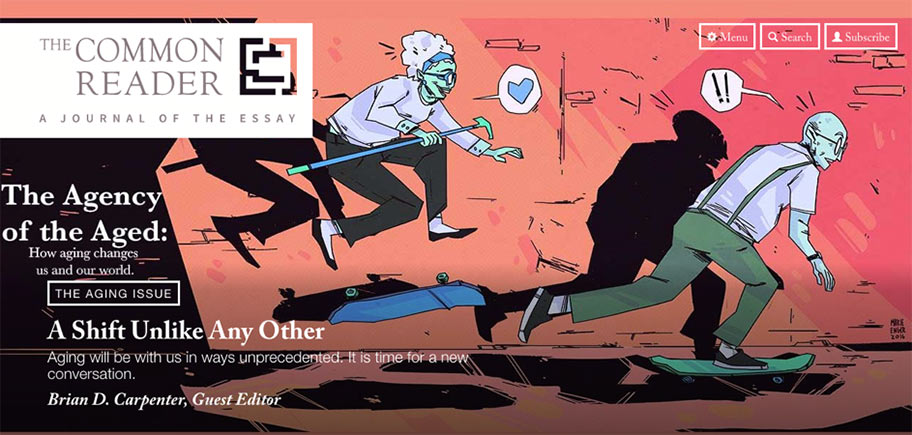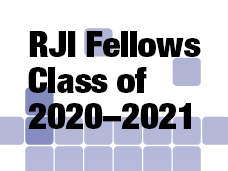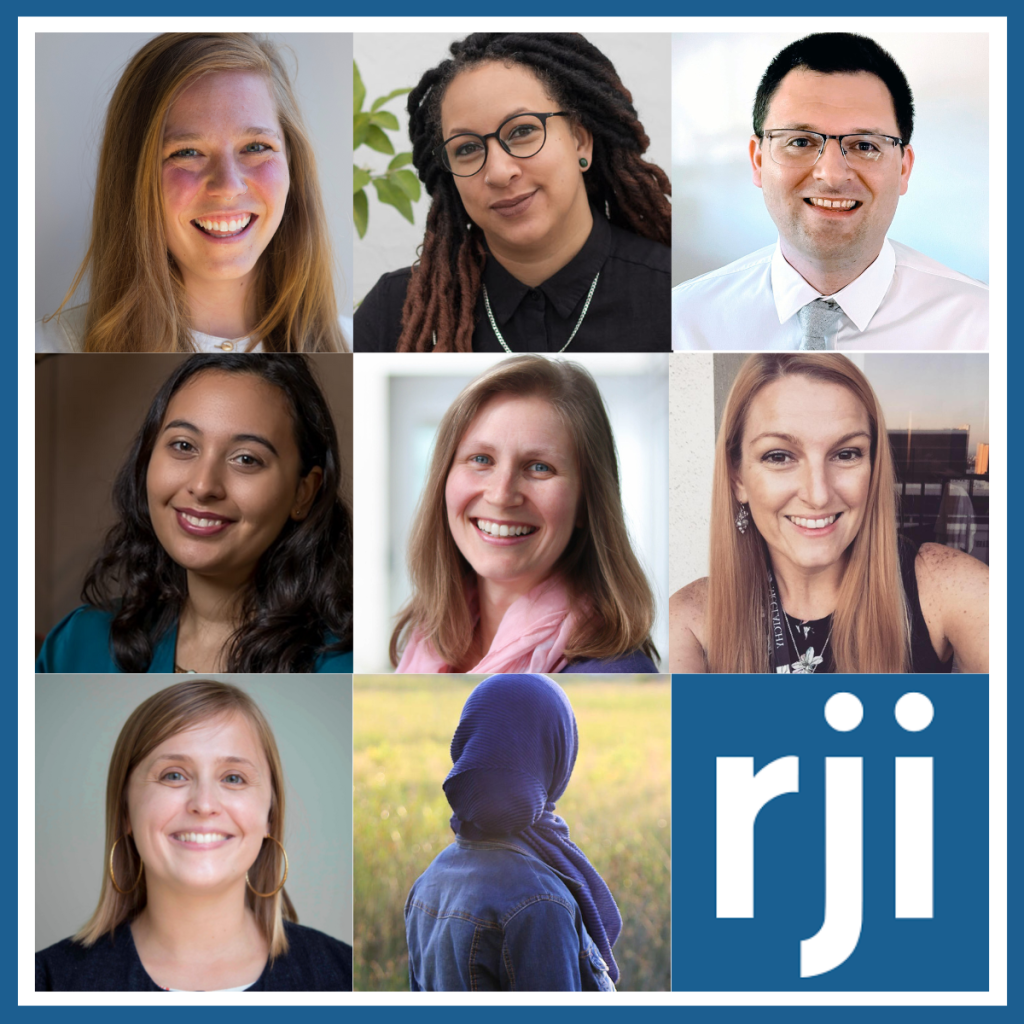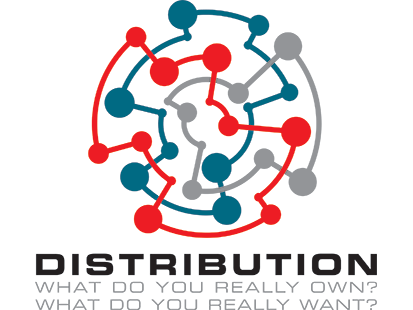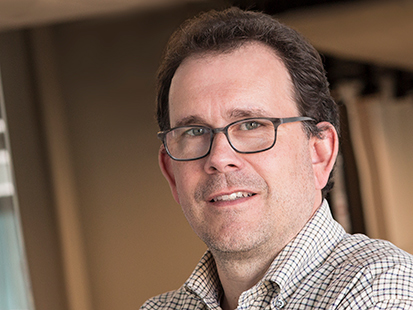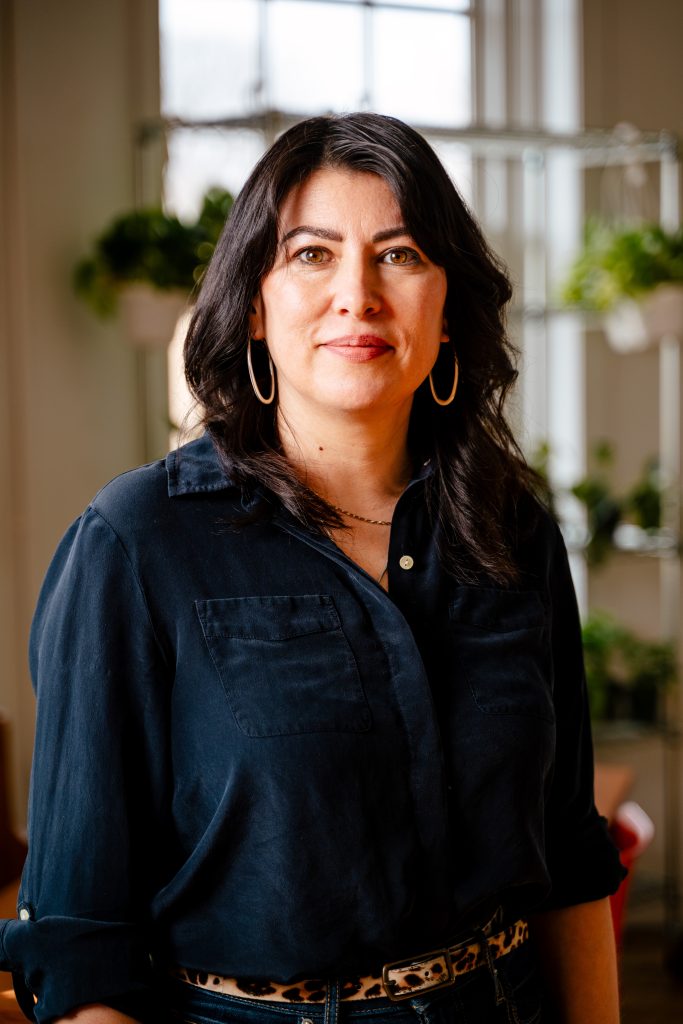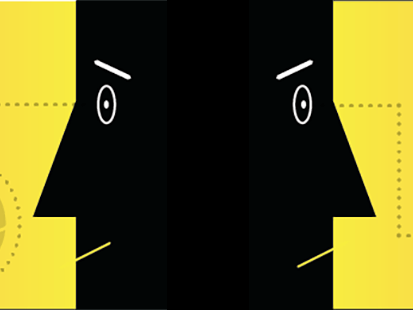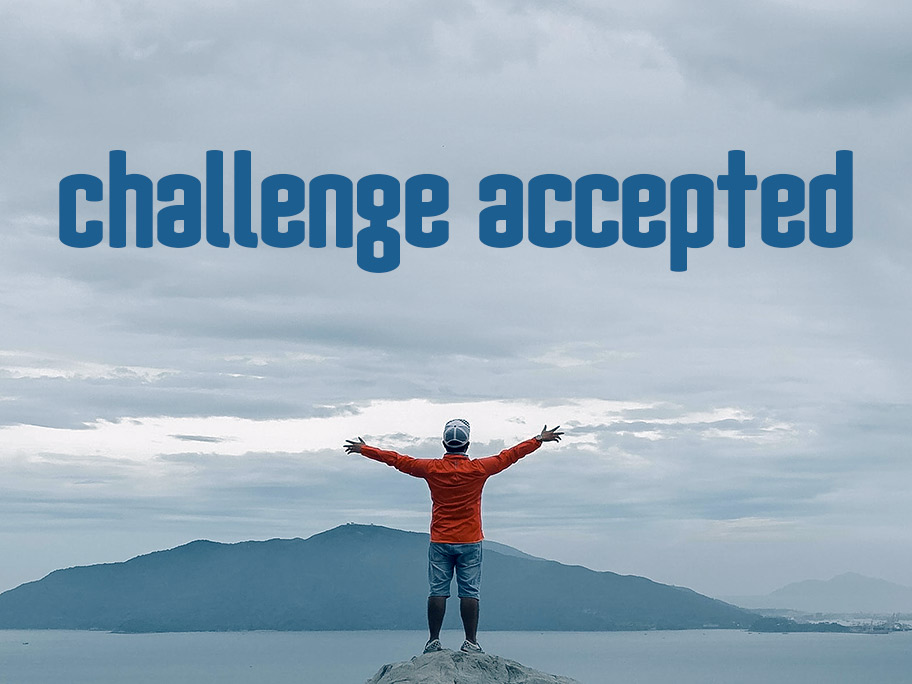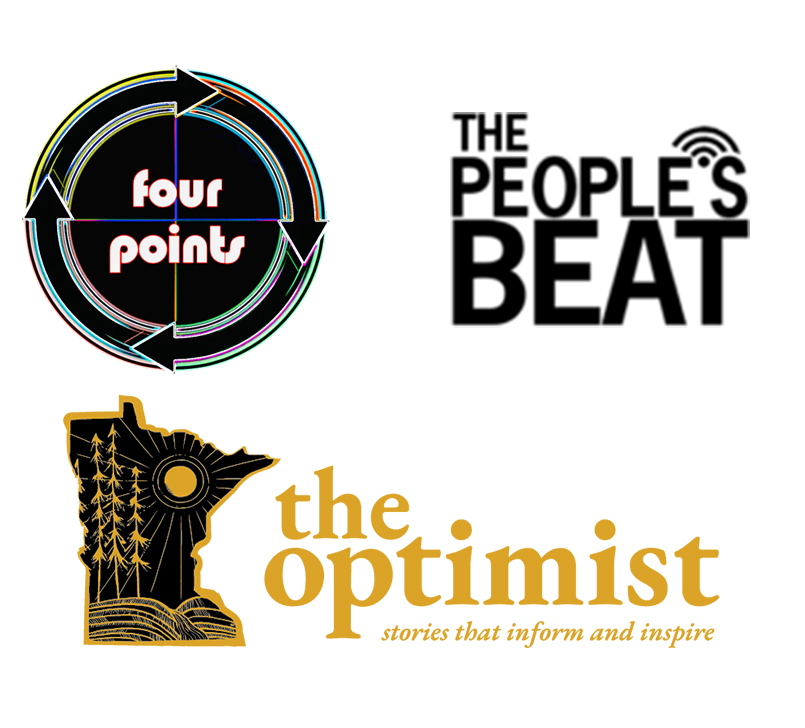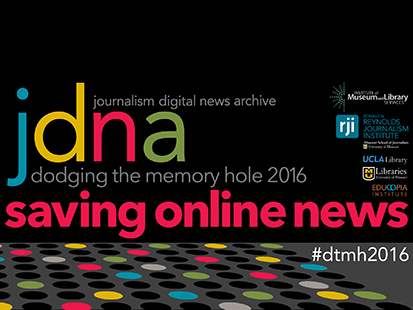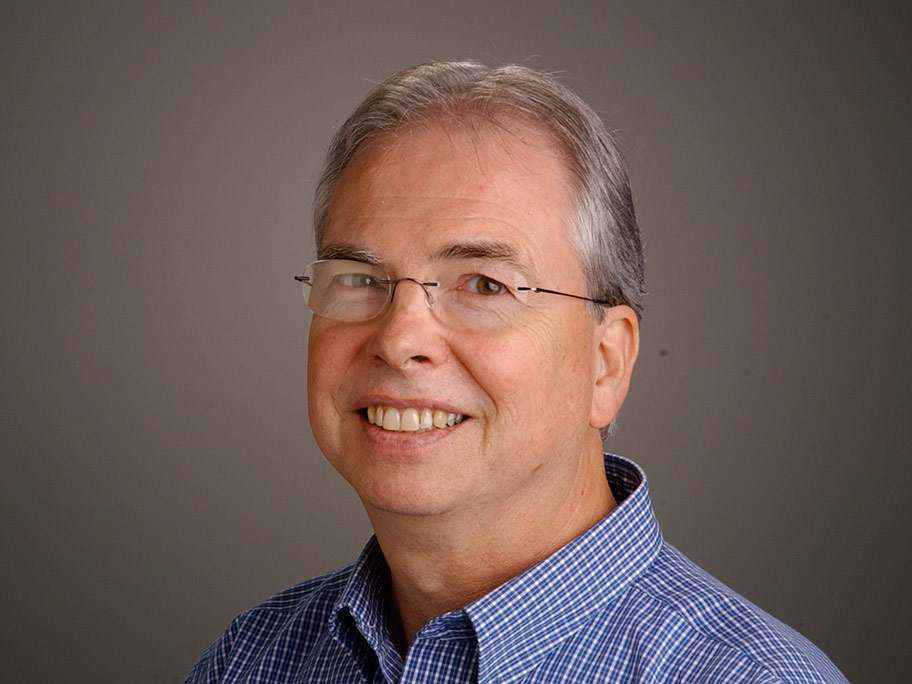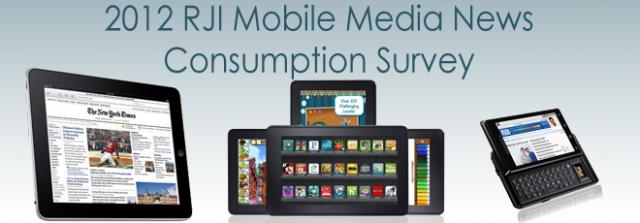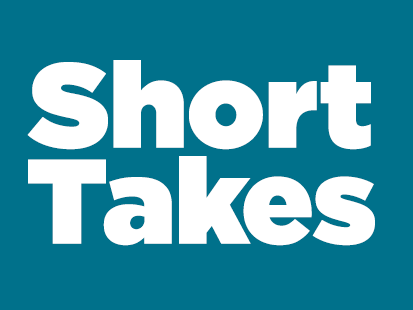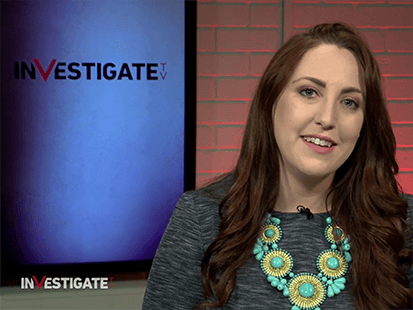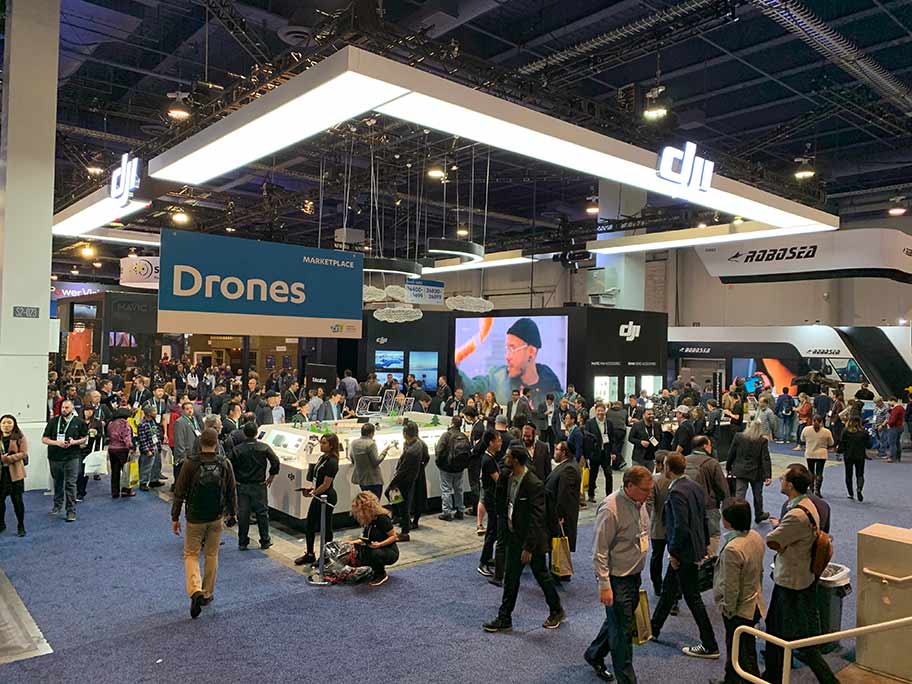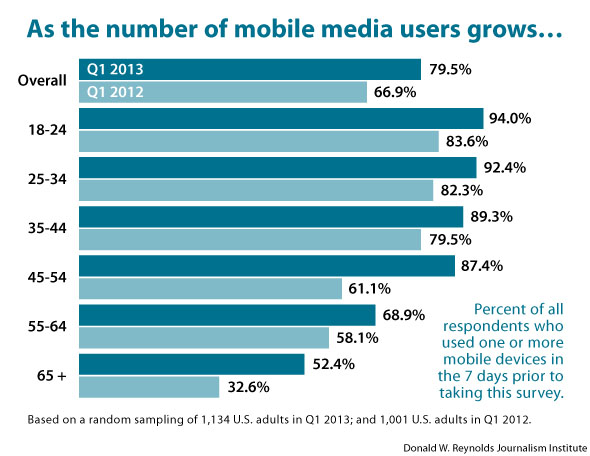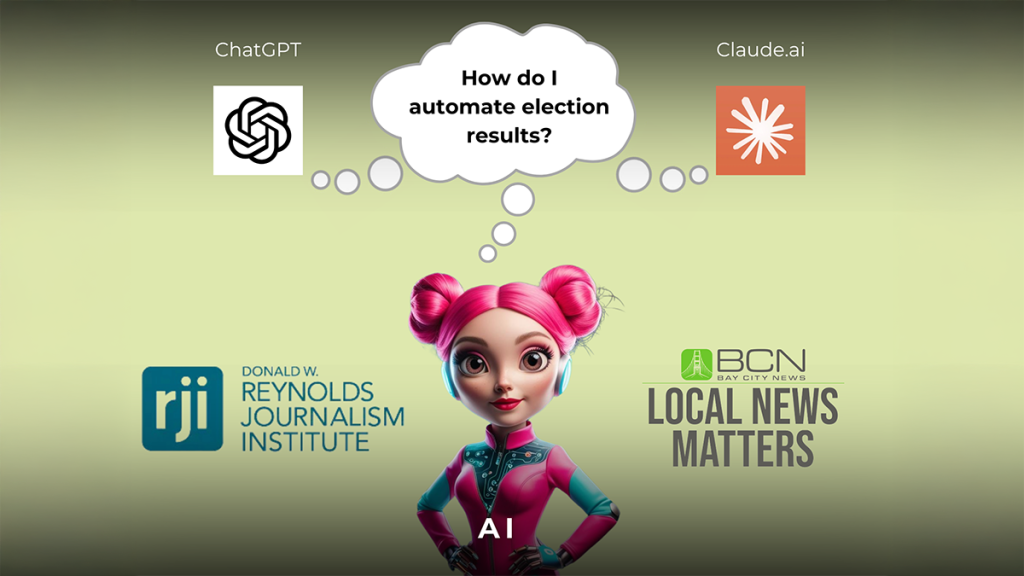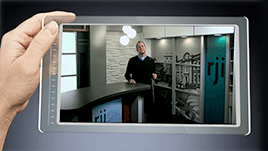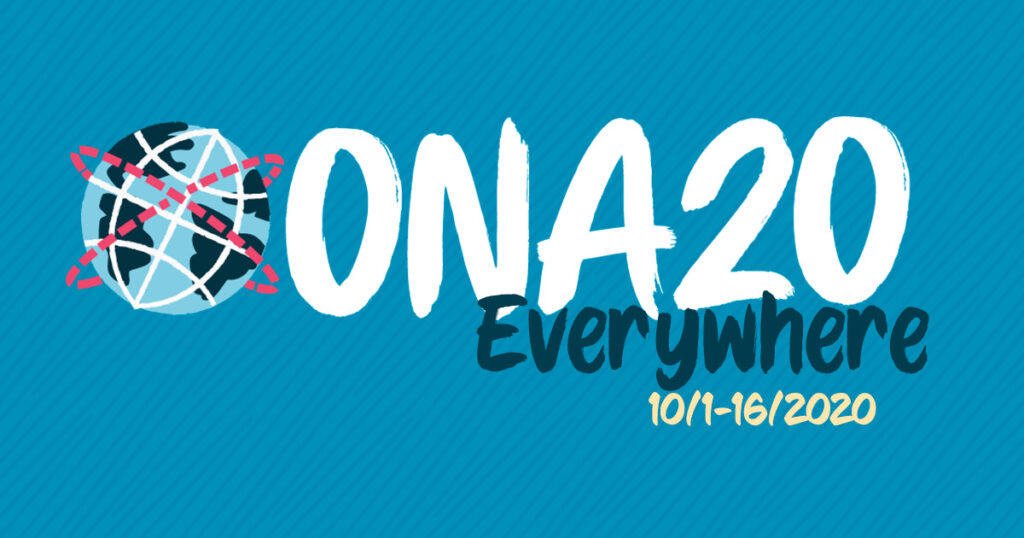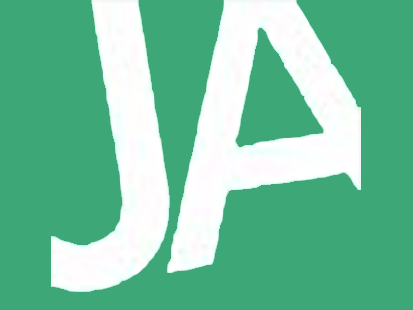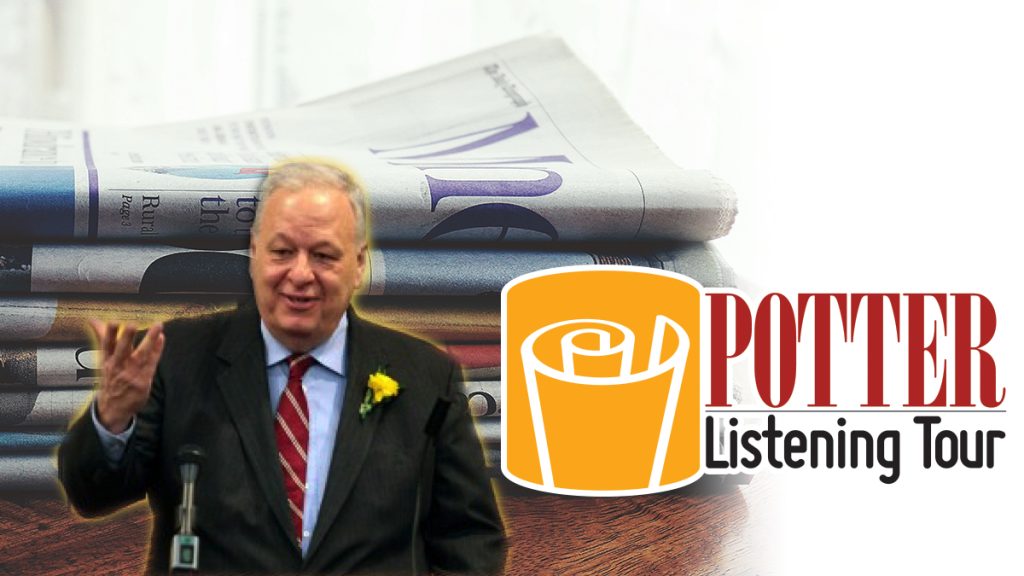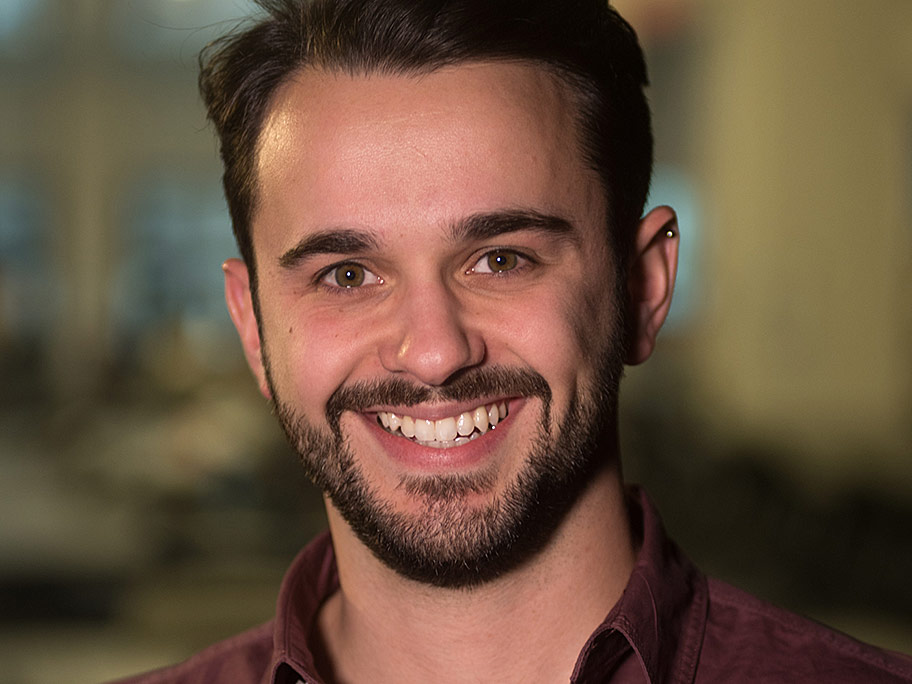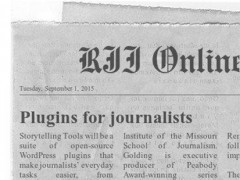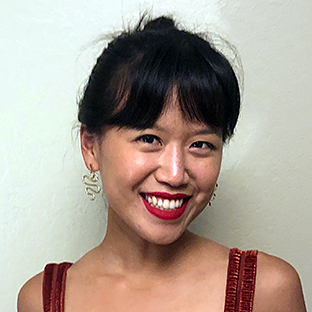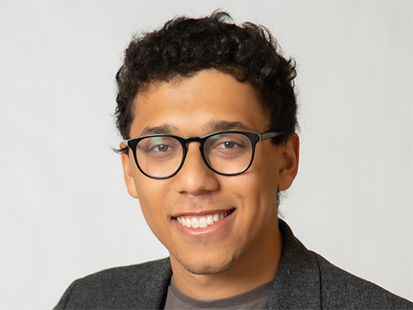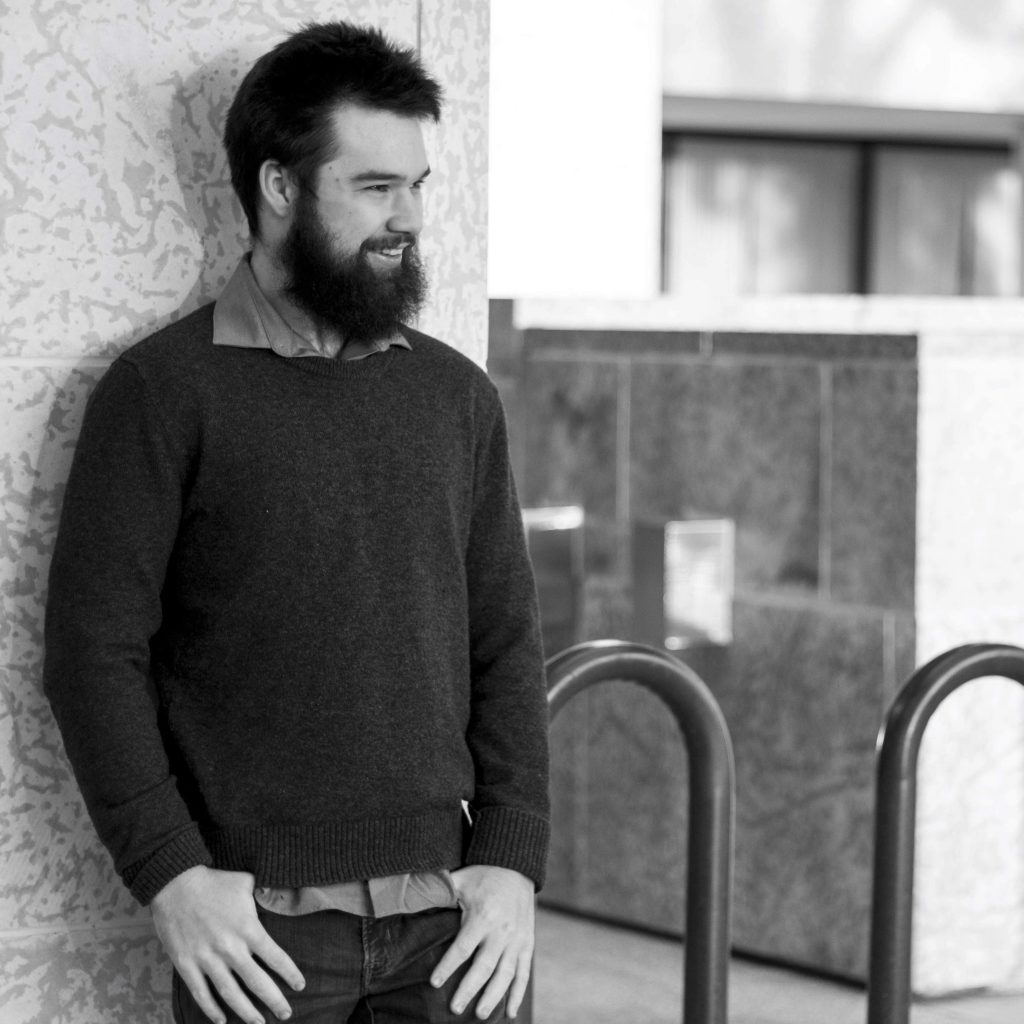
RJI news series
RJI reports on a wide variety of topics of interest to the journalism industry — from how to integrate the use of drones into your newsroom’s information gathering toolbox to columns from working journalists sharing their years of experience. To help you find the information you need and share more like it, we collect related news stories into series.
Our cornerstone: A salute to RJI fellows
Over the past 10 years, the people at RJI have worked hard to ensure journalism has a long and bright future. This includes RJI's ongoing fellowship program, the most flexible in the country, beginning with traditional residential fellowships, where fellows spend eight months in Columbia, Missouri, working on their projects full time.
Job Titles of Tomorrow—Today!
Gone are the days when news organizations had just copy editors and page designers. Nowadays there are newsroom titles like digital optimizer, audience analyst and executive mobile editor. As social media platforms have evolved so have job titles, along with the tools journalists use to communicate with audiences. In this series, RJI will learn more about these titles and the people who hold them.
Scrolling for Story
Three RJI Research Scholars spent the past year studying the effectiveness and sustainability of long-form digital journalism. This five-part series is based on 53 interviews with millennials to gauge this audience’s reception to long-form journalism delivered on mobile platforms.
Women in Journalism Workshop
The Women in Journalism Workshop is an annual workshop that focuses on challenges, accomplishments and issues specific to women in the journalism industry today.
Upasna Gautam columns
Upasna is an RJI Columnist who will provide actionable insights into different facets of leadership development, including: public speaking, compensation negotiation, mindful communication, interview skills/tips, mentorship, and sponsorship. She is product and technology leader at CNN, a tech career coach, mindfulness/meditation teacher, and Board Member at the News Product Alliance. She is an avid public speaker and regularly shares her expertise at conferences like SXSW, Grace Hopper Celebration, INBOUND, Digital Summit, and TEDx to name a few.
Revenue Models That Work
Journalism, as a practice and a profession, stands at a financial crossroads. For much of its history, the money ledger has resided on the “other side” of the journalism business. While journalists pursued truth, advertisers seeking an audience provided the cash flow. Traditional approaches are being supplemented with dynamic, leading-edge practices that demand that content creators and editors understand more about the financial health of their media entities. Oct. 12–13, 2017, the Donald W. Reynolds Journalism Institute and the Missouri School of Journalism hosted an intimate, powerful and resonant conversation on the importance of creating engaging content while maintaining a monetization strategy that works. The opportunities for making money with strong foundational content have never been greater. We looked at best practices for how journalists, editors and other media leaders are engaging audiences while increasing the bottom line.
Digital Preservation
Journalists are dependent upon access to back files for research and context, but those back files may no longer be there. Almost all news content created in the U.S. today is digital, but digital content is even more fragile than print and might be scattered over a variety of media and storage systems.
Dodging the Memory Hole 2014: Saving Born-digital News Content
The Dodging the Memory Hole: Saving Born-digital News Content forum brought together a group of stakeholders to help decide what tomorrow will bring for yesterday’s news. Forum attendees engaged with top minds working in the fields of journalism, library science, business, information technology, law, government and philanthropy. Attendees also developed approaches to possible partnerships between businesses and public institutions that can work for both private enterprise and the public good.
Damian Radcliffe columns
Damian is the Carolyn S. Chambers Professor in Journalism at the University of Oregon. In his columns, he will be exploring how local newsrooms can utilize audio to build revenue, engage audience and diversify the voices we elevate.
RJI Student Innovation Fellows
The RJI Student Innovation Fellows are Mizzou journalism students who are awarded fellowships to work with newsrooms across the country for the summer to introduce new and build upon current innovative initiatives.
RJI Student Competition 2017–2018
The sky’s the limit for participants in the 2017–2018 RJI Student Competition, sponsored by the Donald W. Reynolds Journalism Institute at the Missouri School of Journalism. Previous competitions focused on a specific industry concern or platform. But this year students may address any issue facing the news media, including audience engagement, news productivity and accuracy.
Earning Trust on Social
How do news consumers decide what information to trust, and how can journalists teach users to be smarter consumers and sharers? Joy Mayer and a team of college students have been interviewing journalists and nonjournalists to get a sense of what creates trust and credibility between communicator and receiver.
Dodging the Memory Hole 2015: An Action Assembly
The two-day Dodging the Memory Hole 2015: An Action Assembly forum built on the digital news archiving priorities identified at the 2014 event Dodging the Memory Hole: Saving Born-digital News Content. Sessions focused on connecting various stakeholders, evaluating work that action groups had completed since the 2014 event, and forming more working groups to collaborate on potential solutions to problems. The event was hosted by the Educopia Institute in conjunction with the Journalism Digital News Archive and the Charlotte Mecklenburg Public Library. It took place May 11-12, 2015, at the Charlotte Mecklenburg Public Library in Charlotte, North Carolina.
Adriana Lacy columns
Adriana Lacy is a freelance journalist and audience strategist. In her column she will be exploring new tech and tools for journalism and community engagement.
Breaking news
Breaking News is a series on the self-inflicted fractures breaking the news business from Barrett Golding, web developer and leader of Hearing Voices from NPR.
Reporting on Climate Adaptation
Communities around the United States and the world are having to prepare themselves for an array of climate change impacts. The "Reporter's Guide to Climate Adaptation" is designed to give reporters from every beat a jump start on this emerging challenge. The guide has an extensive resource database, a series of helpful backgrounders, an animated explainer and video tips on story angles. Each week, Reporter's Guide editor Adam Glenn will offer news backgrounders that will help you make best use of the reporter's guide for your climate adaptation reporting. And you can visit the main site directly at http://www.ReportingOnClimateAdaptation.org or, for short, www.ROCA.news.
The Collaboration Culture Symposium
Today’s media companies are using collaboration as a way to stay ahead of rapid change. Efficient organizations understand their core capabilities, and what lies outside their expertise. Some are bartering core competencies in exchange for skills or products; others share technology, storytelling platforms and audience-facing insights. A new “collaboration culture” is emerging and collaboration is becoming the go-to strategy to make things work in the media industries. Join us for this can’t-miss opportunity to hear from the organizations leading the way in the collaborative space. Share what’s working. Discuss barriers to success. Engage in deep conversations. Learn the skills of pivoting your organization. Collaborate on collaboration. View videos and presentations from the March 21–22, 2016, event at the Donald W. Reynolds Journalism Institute.
Need for speed
Dear newspaper publishers, People are calling you names: “News Sites Are Fatter and Slower Than Ever.” They question your competence: “Local newspapers have done a terrible job building local digital audiences.” Your local papers are the major employer of our nation’s reporters and the reservoir of regional history. We need you, but you’re losing us. Barrett Golding, web developer and leader of Hearing Voices from NPR, looks at the issue of the poor performance of most newspaper websites.
Beyond Journalism
Dutch graduate students visited four U.S. journalism startups between December 2015 and February 2016 to observe how these entrepreneurs “make it work” and, in the process, redefine what it means to be a journalist. Their work is part of Beyond Journalism, a study of entrepreneurial journalism by 2015-2016 RJI Fellows Tamara Witschge and Mark Deuze, both journalism professors in the Netherlands.
Samantha Sunne columns
<a href="/people/samantha-sunne/">Samantha Sunne</a> is a freelance journalist and trainer based in New Orleans, Louisiana. She speaks at conferences, universities and newsrooms around the world, including Investigative Reporters & Editors (IRE), the Society of Professional Journalists (SPJ) and the Lede Program at Columbia University. She is co-authoring "Data + Journalism," a textbook to be published in 2023. Her column will be exploring ways for newsrooms and journalists to battle misinformation and disinformation.
Walter B. Potter Sr. Conference 2017
Google and Facebook: New tools to enhance storytelling, reach and engage local audiences. Both Google and Facebook have created — and continue to develop — tools to help journalists, including those in the smallest news organizations, do better work, improve workflow issues and track results. The Walter B. Potter Sr. Conference 2017 was held April 6 to 8 at the Donald W. Reynolds Journalism Institute on the beautiful campus of the University of Missouri in Columbia. During this latest edition of the Walter B. Potter Sr. Conferences attendees learned how community news organizations — weeklies, small dailies and their websites — can reach deeper into their audiences, and grow their audience with new opportunities created with tools from Google and Facebook.
RJI Fellows Class of 2020–2021
This series features stories by RJI’s 2020–2021 class of fellows.
P. Kim Bui columns
P. Kim Bui writes and creates resources for managers, focusing on leaders of color, to better serve journalists of color in their newsroom. Much of the resources align with a column about creating a better workplace for journalists of color, "Sincerely, Leaders of Color," which is written in collaboration with digital leader Emma Carew Grovum. She is also the director of product and audience innovation at the Arizona Republic. A native Iowan, she’s focused her career on leading real-time news initiatives and creating new storytelling forms for digital, print and broadcast companies catering to local, national and global audiences. Prior, she was editor-at-large for NowThis News and deputy managing editor for reported.ly, a distributed social journalism startup. She was in the inaugural class of the Executive Program in News Innovation and Leadership from City University of New York's Craig Newmark Graduate School of Journalism. She’s spoken on journalism and leadership worldwide and written about empathy in journalism for a number of research outlets. She writes a newsletter for emerging leaders and managers, The Middles.
RJI Fellows Class of 2024-2025
The 2024-25 RJI Fellows are tackling everything from sustainability to sonification. Read their articles below to see the current lessons, progress and features in their projects.
What's new? Q&A
We asked newsrooms and ad agencies what they are doing today that they weren’t doing a year ago. Turns out quite a lot! This new RJI series will highlight some of the innovations and experiments we discovered and share what leaders are learning along the way. We call it What’s new with you?
Newsroom Notes
How do you run a newsroom through these unusual times?
Privacy, Personalization and Payment
What will sustain journalism in service of democracy? Because of the rise of the Internet and the financial challenges faced by legacy media organizations, that question tugs at those who write and produce the news. Conferences, reports and columns run through the same checklist: Advertising going digital and mobile and increasingly controlled by technology platforms like Google and Facebook, not by originators of news. Older news consumers willing to pay higher subscriptions, but the millennial generation is not on board. Events, digital-marketing services and transactions are adding revenue quickly, but are a small factor, compared with advertising and subscriptions. Typically, the conferences, reports or columns have ended there — no action or answers to the challenge. That’s starting to change. The NSA-Snowden disclosures, and advertisements which follow us across the Web, have quickened the public’s understanding of the possibilities — and dangers — of the global public network. It’s clear we are tracked, but we’re not sure why or by whom. Bill Densmore, 2008–2009 RJI fellow and later RJI consultant, shared his research into this essential topic in this six-part series.
RJI Fellows Class of 2022-2023
The 2022-23 RJI Fellows are working on a variety of projects from a slack-based SEO bot to a succession planning toolkit. Each month they produce an article sharing lessons learned, guides, templates and tips from the building of their fellowship project.
Megan Finnerty columns
Megan is an RJI Columnist focused on sharing techniques, templates and guidance for centering audience using storytelling best practices. This column shares what journalists can learn from the practice of oral storytelling — our oldest, most familiar form of storytelling — to inform their own work — in text, images, audio, events or interactives.
Distribution: What do you really own? What do you really want?
If content is king, then distribution are all the roads leading to, and from, the kingdom. Those used to be toll roads: A simple transaction defined by use. But today, distributed content, in its many forms, has made that transaction complex. Even confusing. Distribution isn’t just about the pipelines of ingress and regress. It’s about relationship building. In a constantly evolving distribution ecosystem, what are effective distribution strategies on- and off-platform? On March 20–21, 2017, the Donald W. Reynolds Journalism Institute tackled distribution from all angles — from processes, procedures, platforms and the all-important payment structure, and more.
What’s Working
This RJI series will take a deep dive into a strategy or new idea that is gaining traction in the news industry. In three monthly columns, we’ll do an overview of the idea, describe some best practices and talk about what’s next. Then it will be time for the next idea and the next three-column package.
Addressing Burnout
RJI has partnered with research firm SmithGeiger to conduct one of the largest surveys ever conducted in the journalism industry. This series is a collection about that research and also includes articles by columnists and fellows working on the topic.
Fact-Checking, Fake News and the Future of Political Reporting | Hurley Symposium 2017
What’s fact and what’s fake were questions that dominated the 2016 election campaign. Now that Donald J. Trump has been sworn in as the 45th U.S. president, what new challenges face journalists as they seek to cover the White House and Congress accurately and fairly? White House correspondents, Washington bureau chiefs, fact-checking experts, media critics and former White House officials gathered in Washington, D.C., on March 9, 2017, to discuss their strategies for covering the new administration.
Jim Brady columns
Jim Brady is the CEO of Spirited Media, a media consulting firm which operated local news sites Billy Penn in Philadelphia, The Incline in Pittsburgh and Denverite in Denver before selling the businesses in early 2019. Prior to founding Spirited Media, Jim served as executive editor of washingtonpost.com, editor in chief of Digital First Media, head of news and sports at America Online and as public editor of ESPN.
Sarah Alvarez columns
Sarah Alvarez is the founder and Editor-in-Chief of Outlier Media, a local newsroom and information service serving Detroiters.
Trusting News
How do people decide what news is trustworthy? How can journalists influence what users consume and share on social media? And in the era of fake stories, when untruths often travel faster than the truth, what can credible journalists do to stand out? When we began the Trusting News project in January 2016, we had no idea how the presidential campaign would evolve. We didn’t know the intentional spread of false information would play an even larger role in the information climate. We didn’t know Facebook’s algorithm would move toward favoring posts shared by individuals over those shared by pages, making it all the more important that news consumers help spread our content. We just knew the issue of reclaiming the credibility of journalism was worthy of focused attention.
Challenge Accepted
Missouri School of Journalism students partner with media organizations to solve problems they face. Challenge Accepted!
RJI Founders
The RJI Founders are three startup newsrooms whose mission is to serve the underserved communities they are a part of. They will be sharing their lessons, challenges and founding journey over the two years they are working with RJI.
Innovation in Focus
Innovation in Focus is a series exploring new tech, tools and methods of storytelling for journalism. We interview experts, test ideas and provide our findings with templates, guidance and how-tos so you can implement the same innovations in your newsroom. Sign up for the <a href="https://rjionline.us17.list-manage.com/subscribe?u=f9bcc93437a0a9e32c246444b&id=374b2ef55d">Innovation in Focus Newsletter</a> to get a monthly delivery of each topic. Whether you're a one-man band or a large metro, this series will help you take the next step in innovative journalism. Email the editor: lytle@rjionline.org
Dodging the Memory Hole 2016 Scholarship Projects
Dodging the Memory Hole 2016: Saving Online News forum organizers initiated a travel scholarship program for select graduate students to attend the forum at the UCLA Library on Oct. 13 and 14, 2016. The travel scholarship committee was especially interested in working with students from underrepresented and underserved communities. A Laura Bush 21st Century Librarian Program grant from the Institute of Museum and Library Services supported these DTMH-IMLS scholarships, which were offered to students enrolled in graduate programs (e.g., library/information science, journalism, computer science or related fields) in the U.S. A total of 16 students were selected for the awards. As part of their participation, recipients completed short-term projects supporting the goals of the conference.
Neil Mara columns
Neil Mara is an experienced journalist and recently a technology director at the McClatchy newspaper group. In his 2019–2020 RJI fellowship project, he works with executives at U.S. media companies, and news tech providers, to test innovative approaches to stem the loss of born-digital news content that’s vanishing from public access due to technology and industry upheaval. Mara’s project aims to preserve irreplaceable content, and examine ways this unique content can support the digital transformation of news publishing and enrich the historical record.
2012 RJI Mobile Media Research Report
The staff of the RJI Insight and Survey Center interviewed more than 1,000 individuals randomly selected from phone number lists between January 17 and March 25, 2012, for RJI's 2012 Mobile Media News Consumption Survey. More than half of the participants used a cell phone. No incentives were offered to participate in the survey. The questionnaire was designed to gather information from both users and non-users of mobile media devices; however more than half of the questions were designed specifically for device owners. Questions were suggested and reviewed by members of RJI’s Digital Publishing Alliance. All participants were also asked to volunteer standard demographic information.
Short Takes
Short Takes is an occasional series that captures interesting work by Missouri School of Journalism students.
Dodging the Memory Hole 2016: Saving Online News
On Oct. 13–14, 2016, JDNA joined with the UCLA Libraries and the Educopia Institute to present "Dodging the Memory Hole 2016: Saving Online News," where presentrs and attendees explored solutions to the most urgent threat to cultural memory today — the loss of online news content. Journalistic content, published on websites and through social media channels, is fragile and easily lost in a tsunami of digital content. Join other professional journalists, librarians, archivists, technologists and entrepreneurs in addressing the urgent need to save the first rough draft of history in digital form. The two-day forum — hosted by the Donald W. Reynolds Journalism Institute’s Journalism Digital News Archive (JDNA), UCLA Library and the Educopia Institute — featured thought leaders, stakeholders and digital preservation practitioners who are passionate about preserving born-digital news. Sessions updated attendees about existing initiatives, examine critical issues and create a national agenda for protecting online journalism. About the Dodging the Memory Hole series This is the fourth event in the DTMH conference series focusing on preserving born-digital news content. Its name, Dodging the Memory Hole, comes from George Orwell’s “1984,” in which photographs and documents conflicting with “Big Brother’s” narrative were tossed into a “memory hole” and destroyed. Today’s memory hole is largely the unintentional result of technological systems not designed to keep information for the long term. The previous three events were held at the Reynolds Journalism Institute at the University of Missouri and the Charlotte Mecklenburg Public Library in Charlotte, North Carolina and the U.S. Capitol Building, Washington, D.C. For more information about the Journalism Digital News Archive and how you can help save the “first rough draft of history,” like us on Facebook, follow us on Twitter, follow us on LinkedIn or sign up for our Dodging the Memory Hole newsletter.
RJI COVID-19 webinars
Discussions and resources on topics like safety, self care, data, revenue and other challenges journalists are encountering during the COVID-19 pandemic.
2015 RJI Mobile Media Research
U.S. adults who have a phablet —a smartphone with a 5- to 7-inch screen — are much more likely to use it for consuming news than those who have a standard-size smartphone, according to the latest Donald W. Reynolds Journalism Institute (RJI) mobile media poll.
Post
Post is a new media review program from InvestigateTV, Raycom Media’s streaming channel dedicated to in-depth and watchdog reporting. Post is presented in partnership with the journalism organization Investigative Reporters and Editors. The monthly program is taped at the Reynolds Journalism Institute at the University of Missouri, a partner of InvestigateTV.
Why send newsletters?
Newsrooms can no longer afford to distribute poorly curated newsletters. Yet executives from many modern newsrooms say they lack the financial and staff capacity to do otherwise. In early 2017, Crosscut Public Media, in partnership with the Donald W. Reynolds Journalism Institute, will be releasing a new, free tool for newsrooms and newsletter curators to begin addressing this challenge. The team has bundled a powerful package of best practices, strategies and resources into one digital newsletter wizard, which walks newsrooms and independent writers through the essential planning, considerations and decisions needed to curate effective newsletters. Leading up to this release, we’ll share weekly posts to help prepare your newsroom for the tool, and to highlight teams and individuals who are succeeding at curating effective and engaging newsletters.
The Road to OTT
How do news organizations find their footing when the ground starts shifting? We’re going to provide a hands-on view into the process that’s unfolding as newsrooms at the Missouri School of Journalism begin exploring and launching over-the-top (OTT) products and projects.
2014 RJI Mobile Media Research Report
More than half of U.S. households now have tablets and three-quarters have smartphones according to the latest Donald W. Reynolds Journalism Institute (RJI) mobile media poll.
Nia Springer-Norris columns
Nia Springer-Norris is a journalist in Chicago who writes about culture and technology. This column will explore the role of technology in small newsrooms — mainly the use of artificial intelligence in community journalism. The aim is to demystify artificial intelligence and machine learning for newsroom staff and provide strategies for implementation.
Free Speech, Free Press or Free for All? Social Media and the First Amendment
Is the First Amendment still relevant in the age of social media? How can we be sure that what we’re reading and watching is true? What can social media platforms do to curtail the spread of misinformation and lies? How can journalists make the best use of social media to gain audience and enrich their reporting while also protecting themselves from harassment? We explored these questions and more with journalists, social media experts and legal scholars.
Journalism Thought Leaders
The RJI 10th Anniversary video series was filmed by Brian Feulner, and edited by Kat Duncan and Travis McMillen.
RJI@CES 2020
RJI’s director of aerial journalism, Stacey Woelfel, attended the Consumer Electronics Show 2020 in Las Vegas to survey all the new offerings of interest to drone journalists. Here's what he found.
2013 RJI Mobile Media Research
Nearly 80 percent of all respondents to our 2013 Q1 phone survey said that they had used at least one Internet-enabled mobile media device in the seven days prior to taking the survey.
RJI Student Innovation Fellowships 2018
Five Missouri School of Journalism seniors helped advance new storytelling initiatives and business practices at leading news organizations as the latest group of RJI Student Innovation Fellows. Their projects ranged from creating Snapchat content intended to reach first-time voters to helping a product team use emerging technologies such as virtual reality to create content.
Futures Lab Update
Each week we bring you a video roundup of fresh ideas, techniques and developments to help spark innovation and change in newsrooms across all media platforms. (2013–2017)
ONA
Stories, lessons learned and tips from the annual Online News Association conference.
Journalism Accelerator 2012
In early 2012, we invited a half-dozen people with a range of unique roles in the news production mix, to identify the most crucial challenges facing publishers at that moment in time. No enormous surprise: Money was the top concern. More specifically, a collective sense emerged that publishers could benefit from a roadmap of the many small steps needed to increase and stabilize revenue across the industry. As 2012 drew to a close, we once more turned to these insightful people (listed to the right), asking each to share what he or she learned over the course of this chapter in the evolving story of journalism. We also asked a number of other leaders across the industry to share what they learned in 2012. You’ll see excerpts in this post, with their full stories offered as a series that will post over the month of January.
Potter Listening Tour
Walter B. "Walt" Potter Jr., who works with the Donald W. Reynolds Journalism Institute to explore the future of community newspapers, is visiting community newspapers in The Potter Listening Tour. In this series, Potter will try to uncover some of the new realities for community publishers and editors and highlight some of the opportunities and challenges they face. Potter established the Missouri School of Journalism’s Walter B. Potter Sr. Fund for Innovation in Local Journalism in 2010 to help journalists in small communities make the transition from print to new means of communication. The fund supports a series of conferences that connects new technology experts from RJI and elsewhere with small-town newspaper people.
Info District dispatches
With tight budgets and newsrooms getting smaller, news coverage in communities suffers. That’s driving RJI Fellow Simon Galperin, founder and director of the Community Information Cooperative, to launch community information district campaigns during a 2018-19 RJI Fellowship. Info districts fund local news and information projects through an already existing news outlet or by launching separate civic dialogue projects, text messaging services or e-newsletters. The districts would be funded like other special service districts that provide fire protection, water, or sanitation services. Residents and businesses in a geographic area elect to each pay a small amount towards a public service. With everyone contributing, there could be enough funds to support effective local news providers. During the project Galperin plans to publish info district dispatches like — brief, public updates like this one on aspects of the community information districts initiative.
Storytelling Tools
Storytelling Tools will be a suite of plugins for the WordPress CMS designed specifically for — and with the help of — journalists. We're now interviewing newspaper and magazine staffs, and observing their WordPress workflow and noting the pain points.
Yvonne Leow columns
Yvonne Leow is a digital media consultant and founder of Bewilder. In 2018, she co-founded a local media company called By The Bay, and has previously consulted for tech companies like Nextdoor and Sequoia Capital. Yvonne formerly worked for Vox.com, Digital First Media, and the Associated Press. She was also a JSK fellow at Stanford University and a former national president of the Asian American Journalists Association. You can find her at @YvonneLeow.
Gabe Schneider columns
Gabe Schneider is a journalist and cofounder of The Objective. You can find him at @gabemschneider.
John Loeppky columns
John Loeppky is a RJI Columnist whose column will explore issues that focuses on journalism innovation through the lens of disability and freelancing. John is a disabled freelance journalist currently based on treaty six territory in Saskatoon, Saskatchewan, Canada. He has been published by the likes of CBC, FiveThirtyEight, Poynter, Defector, Insider, Healthline, and a host of others. John’s goal in life is to have an entertaining obituary to read and he can be reached at John@Jloeppky.com.
